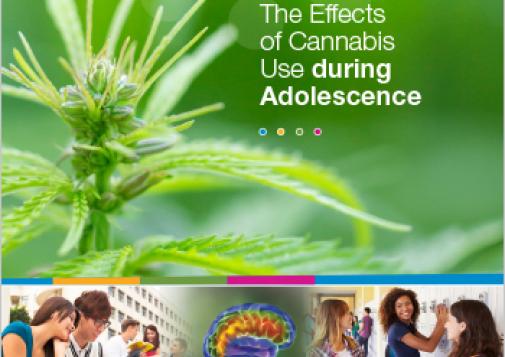
The Effects of Cannabis Use during Adolescence (Report)
Examines the harms and effects of cannabis use on the brains and behaviour of youth, including the link between cannabis and mental illness.
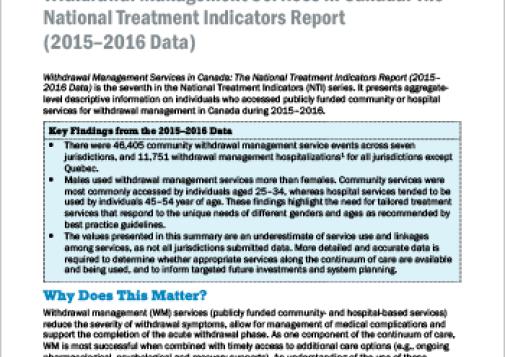
Withdrawal Management Services in Canada: The National Treatment Indicators Report (2015–2016 Data) (Report at a Glance)
Summarizes the full technical report of the same name on the use of withdrawal management services in Canada.
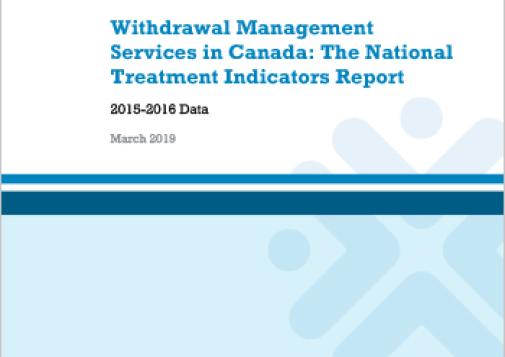
Withdrawal Management Services in Canada: The National Treatment Indicators Report (2015-2016 Data)
Part of the series of reports on National Treatment Indicators, this report examines the use of withdrawal management services in Canada, including episodes of care offered within specialized commu
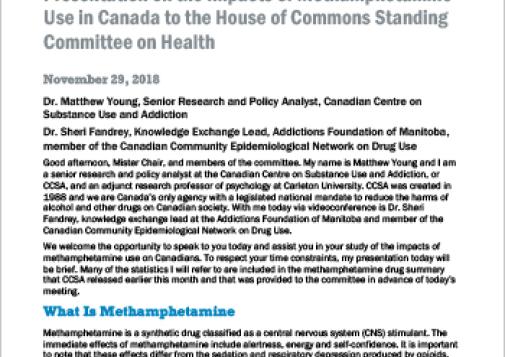
Presentation on the Impacts of Methamphetamine Use in Canada to the House of Commons Standing Committee on Health
Summarizes the impacts of methamphetamine use in Canada, as presented to the House of Commons Standing Committee on Health.
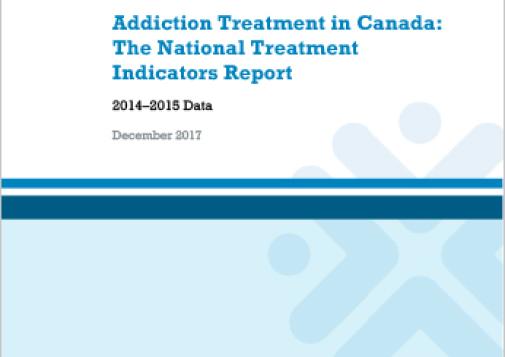
Addiction Treatment in Canada: The National Treatment Indicators Report: 2014–2015 Data
Examines data on individuals who accessed publicly funded services for substance use treatment in Canada to identify treatment trends and information gaps.
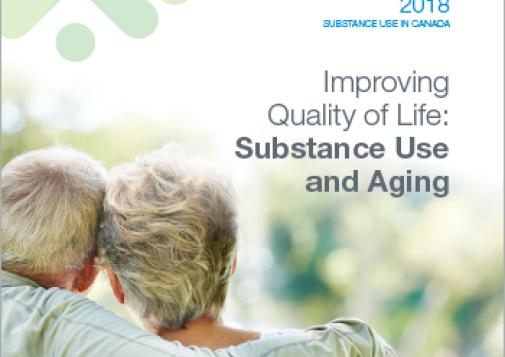
Improving Quality of Life: Substance Use and Aging (Report)
Examines the issues and misconceptions around substance use by older adults.
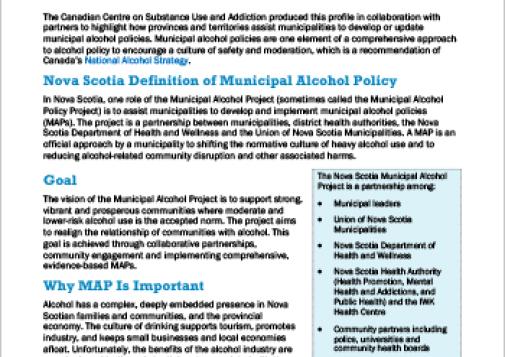
The Nova Scotia Municipal Alcohol Project
Summarizes Nova Scotia’s efforts to develop and update municipal alcohol policies to support strong, vibrant and prosperous communities where moderate and lower-alcohol use is the accepted norm.
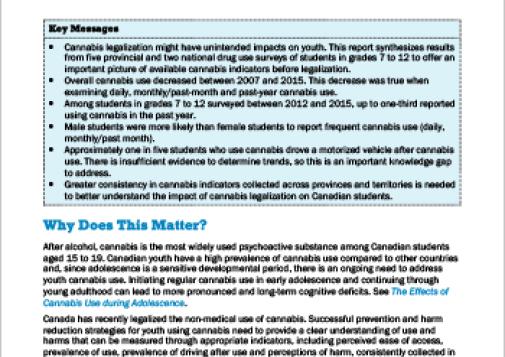
Cannabis Use, Harms and Perceived Risks among Canadian Students (Report at a Glance)
Summarizes the technical report on student drug use surveys taken before legalization.